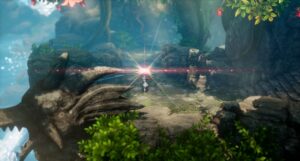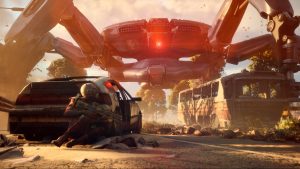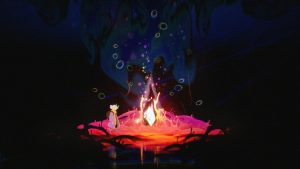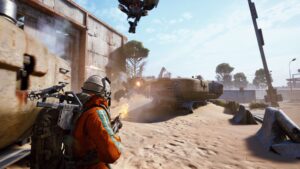
Deadlink is incredibly, incredibly fun and wickedly stylish. The minute you turn it on, the singular sense of aesthetic stands out, and it promises a certain type of game. When I started playing it, those expectations were met and exceeded – the exact kind of stylish and fast shooter that I had imagined from the aesthetic was what the game revealed itself to be. It’s fast, frenetic, focused on movement and placement as much as pure shooting, relies upon you to improvise, and looks dashingly stylish while doing so. The twist comes from the format – this isn’t just a cyberpunk first person shooter, it’s a roguelite on top of all of that too.
Taking from the format popularized by 2020’s Hades, Deadlink has you complete predesigned arenas, pick up a reward, and move on to the next room. The rewards you pick up during a run can have active and passive bonuses that can really stack up and make things easier for you – with the caveat being that they only last for that run, and disappear after that. On the other hand, you also gather meta currency that can help you get stronger and get upgrades across multiple runs, giving you a form of persistent progress. It’s all fairly familiar if you have played Hades, or any other game that has been inspired by it.
Where Deadlink differentiates itself is, obviously, in how it plays. That frenetic combat I mentioned – which players who fell in love with id Software’s DOOM reboot and its sequel will find themselves instantly at home with – can get really hectic and riotously fun. Elemental attacks, status conditions, weaknesses and resistances, cooldown based special abilities, and modifiers (“implants” in game parlance) that you can map to specific actions to get bonuses and perks, are among the many, many wrinkles in the shooting and dashing that the game throws in.
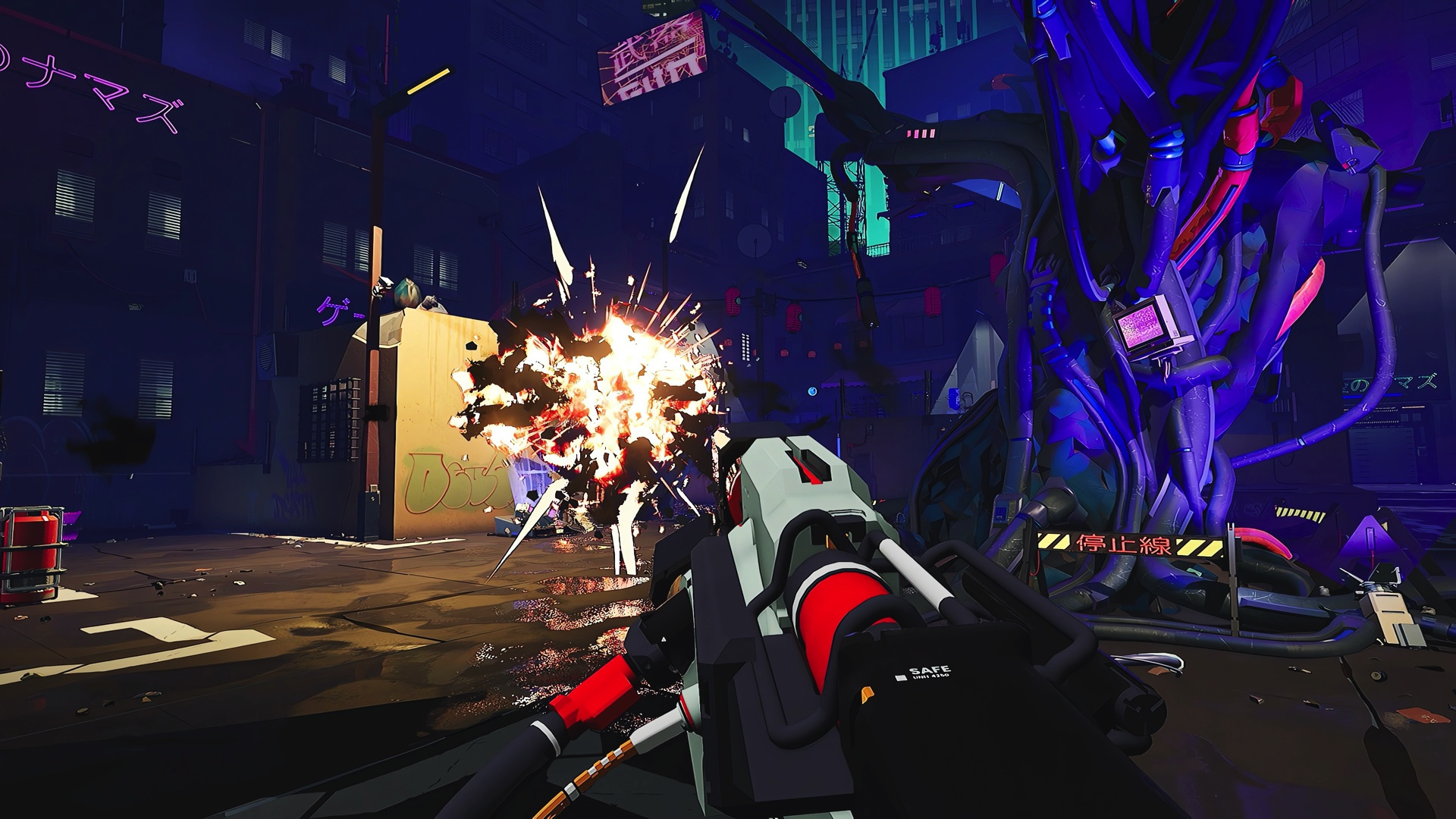
"Deadlink is fast, frenetic, focused on movement and placement as much as pure shooting, relies upon you to improvise, and looks dashingly stylish while doing so."
Even on the lowest difficulty (which the game forces you to start out on), it can provide a hefty challenge to players who may not be familiar with the rogue like modus operandi – especially at first, when Deadlink is arguably at its hardest. The player has not yet had the time to properly adjust to the game’s tool set and use it properly and reflexively (which is a point that you eventually build up to), you haven’t unlocked any of the persistent upgrades that can really help manage the difficulty once you have those. You haven’t unlocked the extra classes (“shells” in universe) that might be better suited to your play style, and help mitigate the challenge a little.
This inverse difficulty curve can be daunting, especially given the roguelite nature which necessitates repetition by definition. But once you’re past the hump, you enter an almost zen-like state, where you’re reflexively using your abilities and chaining them into a flow of attack after ability after dash, and so on. Soon enough, the starting difficulty provides no challenge, and you’re going to want to play on harder difficulties, or try some of the timed or unique challenges, instead.
One of the ways the game keeps the player intrigued enough to keep playing is via the story. Those cyberpunk trappings aren’t just for show, there is a surprisingly deep backstory here, with the game set in a dystopian future where nation states have fallen, and mega corporations basically rule the world. Against this backdrop, you are recruited by a secret agency that was created to dispense of the red tape and formalities and fight against the corporations and curtail them. Before you are deployed on the field, you are made to train in a virtual simulator environment (which is all the repeated runs you are making).
As you progress through the game, more and more of this intriguing (if not necessarily inventive) world and setup is revealed. The story adds great framing context and flavour to the world, and I think it also does the job of keeping the player interested enough to keep playing till they have reached the point in time that the mechanics can keep them busy. If they reach there – as I mentioned, the initial challenge may be enough to turn off at least the more casual player who may have been drawn to its style.
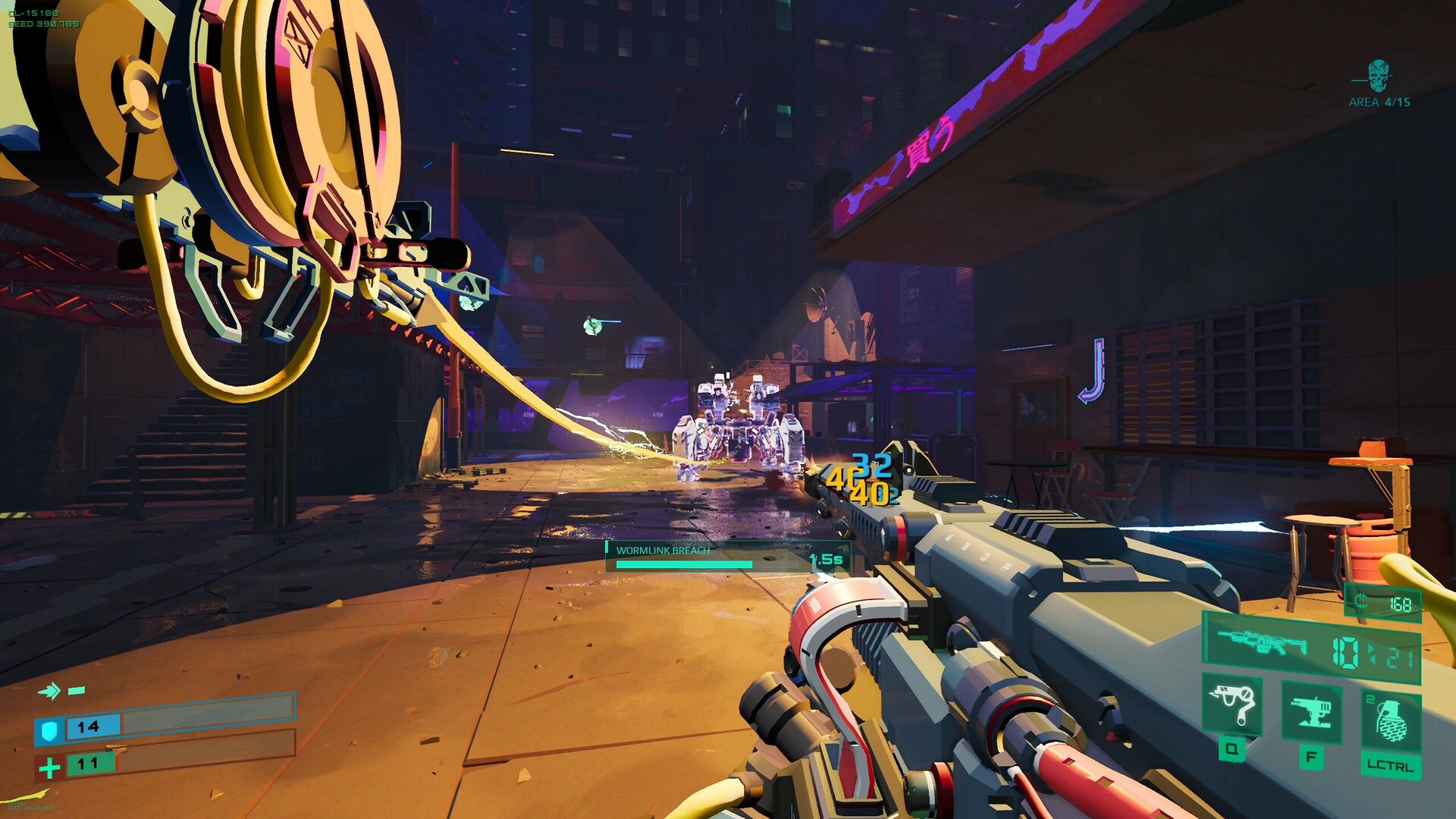
"Deadlink does provide frustration, coming down mostly to its rogue lite elements. The aforementioned repetition is the obvious and unavoidable elephant in the room."
Even for more skilled players, Deadlink does provide frustration, coming down mostly to its rogue lite elements. The aforementioned repetition is the obvious and unavoidable elephant in the room. While this is game that can, and should, keep you busy for a long time, there is no getting around the repetition – the repetition of the enemy types, the repetition of the environments, even the repetition of the upgrades sometimes. You may also have runs where the mixing of the rooms and the pickups just provides for a permutation that is uniquely unfavourable for you. And, of course, like so many other games of this ilk, Deadlink often goes over the top with its idea of difficulty, which it sometimes conflates with “number of enemies the player has to deal with at once”. Fighting off a half dozen enemies can get chaotic (not necessarily in a good way), and is also taxing for the game to boot – at least on the PS5, some of the very busy moments did have some occasional frame rate drops.
The missteps and fumbles associated with Deadlink – whether inherent or inadvertent – are ultimately an unconvincing argument against playing the game. Especially if you are a fan of the cyberpunk aesthetic, or a fan of quick first person shooters, or a fan of the rogue lite structure that Hades perfected and so many other games have since leveraged to their benefit, you will find a lot to like and enjoy here. Deadlink in almost no way breaks any new ground, but it does not need to. It achieves every single thing that it sets out to do, and it does almost all of it extremely well. What few mishaps and mistakes happen along the way would be missing the forest for the trees.
This game was reviewed on PlayStation 5.
Extremely stylish; fast, frenetic pace; compelling roguelite structure; intriguing world and backstory.
The repetition inherent to the rogue lite structure; minor technical hiccups.











